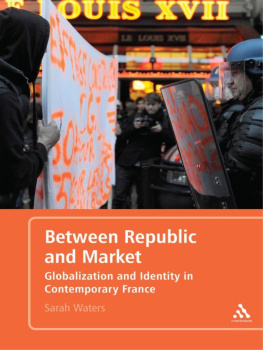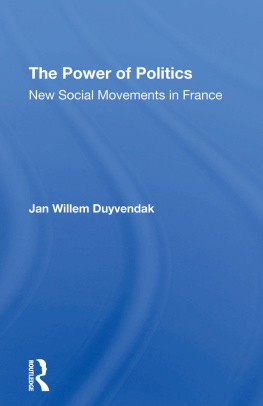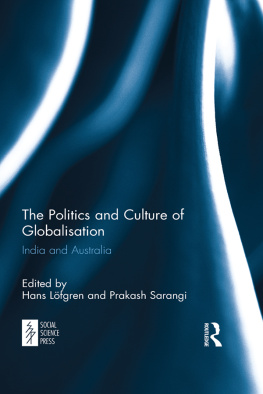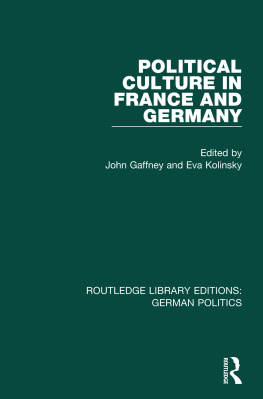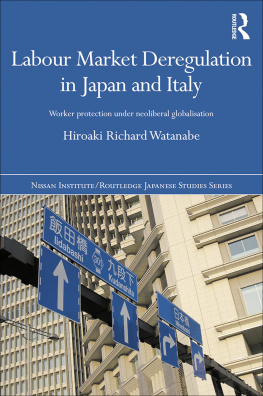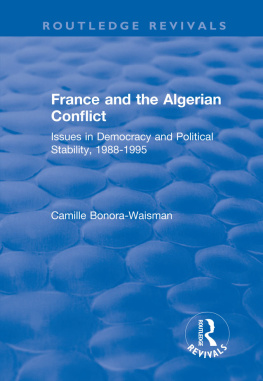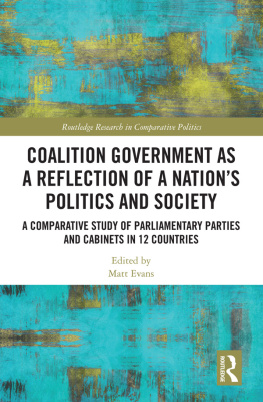Continuum International Publishing Group
A Bloomsbury Company
50 Bedford Square London WC1B 3DP
80 Maiden Lane New York NY 10038
www.continuumbooks.com
Sarah Waters, 2012
All rights reserved. No part of this book may be reproduced, stored in a retrieval system, or transmitted, in any form or by any means, electronic, mechanical, photocopying, recording, or otherwise, without the permission of the publishers.
ISBN: 978-1-4411-5196-4
Library of Congress Cataloging-in-Publication Data
A catalog record of this title is available from the Library of Congress.
Acknowledgements
T his book has been a long time in the making and at times I thought it would never be finished. My very patient editor at Continuum may well tell you that she shared the same opinion. Needless to say, I am very grateful to all the friends and colleagues who helped me along the way with their support, advice and encouragement. I would like to thank the Faculty of Arts at University of Leeds for granting me a precious period of research leave in 20102011, without which this book would never have been completed. I am grateful to all my colleagues in French at University of Leeds, who inevitably took on extra teaching and administration when I took a years leave. Thanks to those colleagues who read chapters and made comments on the manuscript, including Brian Jenkins, David Looseley, Jim House and Martin OShaughnessy. Marie-Claire Antoine at Continuum was a model of patience and efficiency as the book reached its conclusion. Over the years, I have met many political activists in France whose ideas have been a huge source of inspiration to me. These include Bernard Cassen, Pierre Tartatowsky and Franois Chenais at Attac and Rgis Hochart at the Confdration paysanne. Both associations were extremely generous in allowing me to access their archives and internal documentation. Thanks also to my old friend, Marie Lapel who always found time to welcome me at her home during my visits to France. The book draws on research carried out over many years, some of which has appeared in earlier published articles.
Introduction: Republic
against market
T he onset of the economic crisis of 2008 sparked intense criticism, within many countries across the world, of the failings of a model of globalization that was seen as responsible for the wholesale collapse of the world economy. Many of those who had once championed free market economics now seemed to become its fiercest critics, calling for a radical overhaul of the economic system, a return to state interventionism, tougher market regulation and new financial controls. This sense of disillusionment was widespread within public opinion, the media and political life and was summed up by one observer in the following terms: Laissez-faire is out and activist governments are in; deregulation has become a four-letter word and the cry for more government control of the financial sector is universal (Nam, 2009: 30).
Yet in France, this criticism was not a response to recent economic events, but reflected arguments that had been consistently and forcefully made over the preceding 20 years. During this period, France had been at the forefront of a movement of opposition to globalization that mobilized on a national and international stage, so that for many activists the Hexagon has often been perceived across the world as the model to follow (Pleyers, 2003: 141). The purpose of this book is to examine the nature and causes of French opposition to globalization during this period. Why did France seem to produce greater opposition to globalization than anywhere else? How was this opposition articulated and expressed? To consider these questions is to look in on a nation that is struggling to redefine itself and the terms of its political identity in a changing globalized world.
While all European nations have experienced globalization, it is in France that this produced its deepest tensions and generated its greatest resistance. Nowhere else did globalization spark such a scale of social protest, public malaise, political opposition and intellectual self-enquiry. An official report carried out at the request of Nicolas Sarkozy summed up French attitudes to globalization in the following terms: For over 15 years at least, the French attitude towards globalization has been characterized by persistent mistrust and by a constant pessimism of the French towards their future, their country and the future of their children (Vdrine, 2007: 13). Repeated opinion polls demonstrate that globalization in France remains a source of deep-seated anxiety, fear and malaise and globalization is blamed for a range of ills from national decline to fading international prestige, from loss of cultural identity to increased economic vulnerability. A 2010 Eurobarometer public opinion survey of the 27 member states of the European Union, showed that France has higher levels of mistrust towards globalization than almost any other country. Such hostility intensified after the economic crisis with a loss of confidence in the role of international institutions and France was shown to have the third lowest level of trust in the European Union of all 27 countries, at 39 per cent (above Germany at 37 per cent and the UK at 20 per cent) (European Commission, 2010).
Such grievances were forcefully expressed through social protest in the streets and since the public sector strikes of 1995, described as the first revolt against globalization, this has become the single most important source of conflict in France, triggering an ongoing cycle of protest including the 2005 demonstrations against the European Constitutional Treaty, the 2006 demonstrations against the right-wing governments youth employment bill (Contrat premire embauche), the 2009 trade union strikes and the 2010 demonstrations against Nicolas Sarkozys pension reform (Izraelewicz, 1995). During this period, globalization became the new face of the enemy as protestors focussed their anger less on the political decisions of the French government, but on financial markets that were seen to reduce the state to a mere pawn in an economic game that was outside its control (Mouchard, 2005: 5). Hence those who took part in the 2010 demonstrations against pension reform argued that the real target of their protest was a neo-liberal onslaught that was undermining solidarity within French society and preventing the state from fulfilling its duties towards its citizens (Aguiton et al., 2011). Such protest was not confined to the domestic scene and France has been at the centre of a movement of opposition to neo-liberalism that has mobilized across an international stage and which French activists refer to as altermondialisme. French protest groupings such as Attac and the Confdration paysanne helped to spawn an international movement of opposition that brought together activists from across the world. Originally created in order to promote a Tobin tax on international financial transactions, Attac was until recently an influential international grouping with affiliated organizations in nearly forty countries. Meanwhile, Jos Bovs Confdration paysanne has been at the centre of an international peasant movement that mobilizes farmers and citizens more widely, in a campaign for an alternative economic order that challenges both the economic and symbolic dimensions of globalization.

